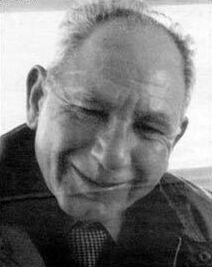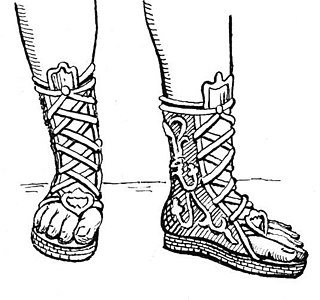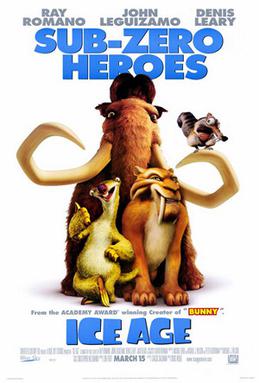
The Inquisition was a judicial procedure and a group of institutions within the Catholic Church whose aim was to combat heresy, apostasy, blasphemy, witchcraft, and customs considered deviant. Violence, torture, or the simple threat of its application, were used by the Inquisition to extract confessions and denunciations from heretics. Studies of the records have found that the overwhelming majority of sentences consisted of penances, but convictions of unrepentant heresy were handed over to the secular courts, which generally resulted in execution or life imprisonment. The Inquisition had its start in the 12th-century Kingdom of France, with the aim of combating religious deviation, particularly among the Cathars and the Waldensians. The inquisitorial courts from this time until the mid-15th century are together known as the Medieval Inquisition. Other groups investigated during the Medieval Inquisition, which primarily took place in France and Italy, include the Spiritual Franciscans, the Hussites, and the Beguines. Beginning in the 1250s, inquisitors were generally chosen from members of the Dominican Order, replacing the earlier practice of using local clergy as judges.

The breaking wheel, also known as the execution wheel, the Wheel of Catherine or the (Saint) Catherine('s) Wheel, was a torture method used for public execution primarily in Europe from antiquity through the Middle Ages up to the 19th century by breaking the bones of a criminal or bludgeoning them to death. The practice was abolished in Bavaria in 1813 and in the Electorate of Hesse in 1836: the last known execution by the "Wheel" took place in Prussia in 1841. In the Holy Roman Empire it was a "mirror punishment" for highwaymen and street thieves, and was set out in the Sachsenspiegel for murder, and arson that resulted in fatalities.

Marie-Josèphe dite Angélique was the name given to a Portuguese-born black slave in New France by her last owners. She was tried and convicted of setting fire to her owner's home, burning much of what is now referred to as Old Montreal. It had been generally accepted that Angélique was guilty, but it has recently been argued that she was innocent of the crime and was convicted more on the basis of her reputation as a rebellious runaway slave than on the basis of factual evidence. A competing theory is that she was guilty of the crime but was acting in rebellion against slavery. No consensus has been reached by historians regarding Angélique's actual guilt or innocence.

Sheep meat is one of the most common meats around the world, taken from the domestic sheep, Ovis aries, and generally divided into lamb, from sheep in their first year, hogget, from sheep in their second, and mutton, from older sheep. Generally, "hogget" and "sheep meat" are not used by consumers outside Norway, New Zealand, South Africa, Scotland, and Australia. Hogget has become more common in England, particularly in the North often in association with rare breed and organic farming.

Al Arabiya is a Saudi state-owned international Arabic news television channel. It is based in Riyadh and is a subsidiary of MBC Group.

The term boot refers to a family of instruments of torture and interrogation variously designed to cause crushing injuries to the foot and/or leg. The boot has taken many forms in various places and times. Common varieties include the Spanish boot and the Malay boot. One type was made of four pieces of narrow wooden board nailed together. The boards were measured to fit the victim's leg. Once the leg was enclosed, wedges would be hammered between the boards, creating pressure. The pressure would be increased until the victim confessed or lost consciousness.

Bashar al-Assad also known as Abu Hafez is a Syrian politician who is the 19th and current president of Syria since 2000. In addition, he is the commander-in-chief of the Syrian Armed Forces and the secretary-general of the Central Command of the Arab Socialist Ba'ath Party. He is a son of Hafez al-Assad, who was President of Syria from 1971 to 2000.

A gallery grave is a form of megalithic tomb built primarily during the Neolithic Age in Europe in which the main gallery of the tomb is entered without first passing through an antechamber or hallway. There are at least four major types of gallery grave, and they may be covered with an earthen mound or rock mound.

Legcuffs are physical restraints used on the ankles of a person to allow walking only with a restricted stride and to prevent running and effective physical resistance. Frequently used alternative terms are leg cuffs, (leg/ankle) shackles, footcuffs, fetters or leg irons. The term "fetter" shares a root with the word "foot".

A squat is a strength exercise in which the trainee lowers their hips from a standing position and then stands back up. During the descent, the hip and knee joints flex while the ankle joint dorsiflexes; conversely the hip and knee joints extend and the ankle joint plantarflexes when standing up. Squats also help the hip muscles.

Riad al-Turk was a Syrian opposition leader, a political prisoner for about 20 years, and supporter of democracy, who was called "the Old Man of Syrian opposition." He was secretary general of the Syrian Communist Party from its foundation in 1973 until 2005.

A buskin is a knee- or calf-length boot made of leather or cloth, enclosed by material, and laced, from above the toes to the top of the boot, and open across the toes.
Brodequin is an American death metal band from Knoxville, Tennessee, United States. Formed in 1998 by brothers Mike and Jamie Bailey, the band has released four albums and two EPs, their latest release being Harbinger of Woe, which was released in 2024.

Rapid Action Battalion is an anti-crime and anti-terrorism unit of the Bangladesh Police. This elite force consists of members of the Bangladesh Army, Navy, Air Force, Police, Border Guard, and the Bangladesh Ansar. It was formed on 26 March 2004 as RAT, and commenced operations on 14 April 2004.

The jiagun ankle crusher was a Chinese instrument of torture consisting of three wooden boards approximately a yard in length that were connected with cords, which when placed around a suspect's feet and gradually pulled, caused agonizing pain in order to force a confession. Under traditional Chinese law, a person could not be convicted of a crime unless they confessed. The jiagun was a legal and non-lethal method for torturing men to confess, and for women there was the similar and less painful zanzhi finger crusher with small sticks and cords.

A caulkin is a blunt projection on a horseshoe or oxshoe that is often forged, welded or brazed onto the shoe. The term may also refer to traction devices screwed into the bottom of a horseshoe, also commonly called shoe studs or screw-in calks. These are usually a blunt spiked cleat, usually placed at the sides of the shoe.

Ice Age is a 2002 American animated adventure comedy film produced by Blue Sky Studios and distributed by 20th Century Fox. The film was directed by Chris Wedge and co-directed by Carlos Saldanha from a screenplay by Michael Berg, Michael J. Wilson, and Peter Ackerman, based on a story by Wilson. It features the voices of Ray Romano, John Leguizamo, Denis Leary, Goran Višnjić, and Jack Black. Set during the days of the Pleistocene ice age, the film centers around three main characters—Manny (Romano), a no-nonsense woolly mammoth; Sid (Leguizamo), a loudmouthed ground sloth; and Diego (Leary), a sardonic saber-toothed tiger—who come across a human baby and work together to return it to its tribe. Additionally, the film occasionally follows Scrat, a speechless "saber-toothed squirrel" (Wedge), who is perpetually searching for a place in the ground to bury his acorn.

Syrian–Palestinian relations refers to the official relations between Syria and Palestine. Palestine has an embassy in Damascus, but Syria has no official representative office in Palestine.
The torture of Russian soldiers in Mala Rohan was an incident during the 2022 Russian invasion of Ukraine that occurred in the village of Mala Rohan. As documented by the UN High Commissioner for Human Rights, members of Ukrainian armed forces shot the legs of three captured Russian soldiers and tortured Russian soldiers who were wounded. The incident is likely to have occurred on the evening of March 25, 2022 and was first reported following the publication on social media of a video of unknown authorship between March 27 and March 28. As a case of summary execution and torture of prisoners of war, the incident might qualify as a war crime.
















